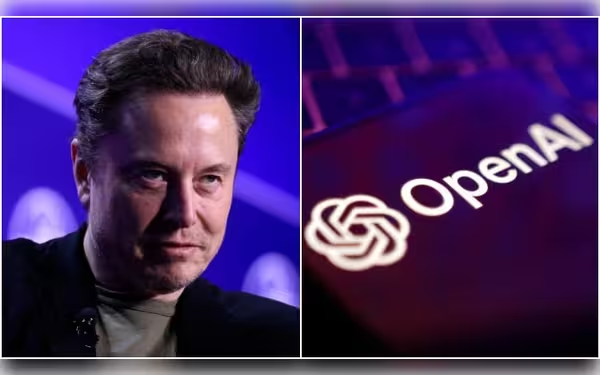Monday, December 23, 2024 12:33 AM
Elon Musk Seeks Legal Action Against OpenAI's For-Profit Shift
- Musk files injunction to block OpenAI's for-profit transition.
- Concerns raised over investor restrictions impacting competition.
- Ongoing feud highlights ethical challenges in AI development.
 Image Credits: geo
Image Credits: geoElon Musk seeks to block OpenAI's for-profit transition, citing competition concerns and investor restrictions.
In a significant legal move, Tesla CEO Elon Musk has once again turned to the U.S. court system, seeking to halt OpenAI's transition into a for-profit organization. This request comes amid ongoing tensions between Musk and OpenAI, the artificial intelligence company he co-founded in 2015 but departed from in 2018. Musk's legal team filed an injunction on Friday, aiming to prevent OpenAI from not only converting to a for-profit model but also from allegedly restricting its investors from supporting competing firms.
OpenAI, which has gained immense recognition in the AI sector, originally started as a non-profit organization. Over the years, it has evolved into a 'capped' for-profit entity, and now it is pursuing the status of a for-profit public benefit corporation. This shift is intended to attract more investment, which is crucial in a rapidly growing industry where billions of dollars are at stake.
Musk's concerns stem from his belief that OpenAI's current practices could disadvantage his own AI startup, xAI. He has accused OpenAI of preventing its investors from backing rival companies, which he argues creates an uneven playing field in the competitive landscape of artificial intelligence. This situation has escalated into a business feud, with Musk previously filing a lawsuit against OpenAI in March, claiming that the organization has strayed from its original mission of making AI research accessible to everyone.
OpenAI, on the other hand, has responded to Musk's allegations by suggesting that his lawsuit is merely a reaction to his departure from the company. They argue that Musk's embrace of open-source AI development is a sign of his frustration rather than a legitimate concern about the direction of the company.
This ongoing dispute highlights the complexities and challenges within the tech industry, particularly in the field of artificial intelligence. As companies navigate the balance between profit and ethical responsibilities, the outcomes of such legal battles could have far-reaching implications for the future of AI development. The situation serves as a reminder of the importance of transparency and collaboration in an industry that is poised to shape the future of technology.













